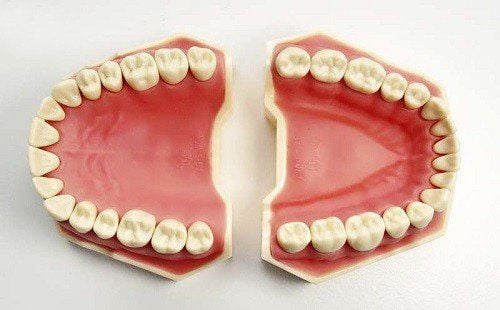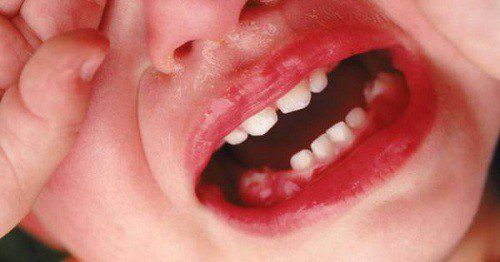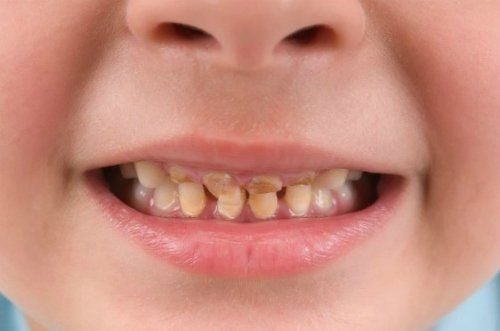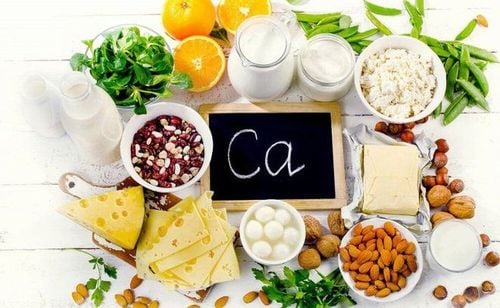This is an automatically translated article.
Sensitive tooth pain causes discomfort and greatly affects quality of life. In addition to regular oral hygiene and regular dental check-ups, it is extremely important to take measures to protect your teeth by avoiding harmful foods.
1. Foods that are harmful to teeth
Some foods are extremely common in daily life but may not be good for oral health. So, the first question to ask is what to eat that harms teeth? The following are foods that are harmful to teeth to be aware of.
Sugar: Sweets stick to the teeth as well as the surface of the teeth and take a long time to dissolve. Bacteria in the oral cavity will consume sugar and convert it to acid, which erodes and weakens tooth enamel. Enamel is the outermost layer that protects teeth. Once tooth enamel is lost, it will be difficult to regenerate itself. Limiting your sugar intake is a great way to take care of your teeth's health. Foods that stick to the teeth: Besides sugar, foods and drinks like peanut butter, dried fruit or gummies stick on the teeth and crevices for a long time, the more acid is produced. This will erode tooth enamel and increase the risk of tooth decay. Instead, eat fresh fruit, although they also contain sugar, but won't stick to your teeth and saliva can clean. Starchy foods: French fries, bread, pizza, pasta can also get between teeth. These starches are not as sweet as sugar but will convert to sugar, which damages tooth enamel. Carbonated drinks: Carbonated soft drinks, sports drinks are foods that are harmful to teeth if used regularly. Not only are they high in sugar, most of these drinks contain phosphoric and citric acid that eat away at tooth enamel, allowing bacteria to secrete more acid. Tea is a sugar-free beverage that has anti-carcinogenic properties and helps prevent tooth decay. But teas also contain organic acids that can wear down tooth enamel. Alcohol and coffee: inhibit the secretion of saliva, a natural secretion of the body that helps clear food debris, provides a slime layer that protects against acids and replenishes teeth with minerals. Alcohol dries out the mouth and reduces natural saliva production. These drinks can damage teeth, lead to gum disease and even oral cavity cancer. Alcohol also irritates all the soft tissues in the mouth. If you drink too much alcohol, the acid in alcohol will erode tooth enamel, causing teeth to become spongy and discolored. Acidic foods: Acidic fruits like lemons, oranges or pickled foods are harmful foods for teeth, because of their high acid content and demineralization of teeth. Using foods that contain a lot of acid can erode the enamel layer of the teeth, exposing the dentin layer, making the teeth more sensitive. Hard foods: Chewing on ice or eating foods that are too hard can not only cause cracks in the teeth, making the crowns loose, but also damage the enamel.

Bánh kẹo ngọt là một trong các loại thực phẩm có hại cho răng
2. Foods that are good for teeth
Besides limiting foods that are harmful to teeth, the next question is what should be eaten for good teeth? The following are foods that are good for teeth health.
Water: should rinse your mouth with salt water or clean water after each meal or drink soft drinks, juices. It is important not to brush your teeth immediately after drinking alcohol or eating acidic foods or carbonated drinks because this will cause enamel to wear down faster. Rinse your mouth with clean water, wait about half an hour, then brush your teeth. Foods rich in calcium and minerals: nuts such as walnuts, cashews, almonds and peanuts provide important minerals, strengthen the protective layer of enamel, strengthen teeth. Milk, cheese and fortified powders contain essential vitamins and minerals, and add calcium needed for healthy teeth. High-fiber foods: Crispy and juicy fresh vegetables like watermelon, cantaloupe, cucumbers, apples, pears and green vegetables contain a lot of vitamins and minerals. They also contain folic acid and calcium. These foods increase salivation, help increase mineral content, fight acid attack and are good choices for the body's health. Whole grains: Rich in fiber and B vitamins to help support overall oral and dental health. Whole grains contain less sugar and are not easily broken down. In short, protecting oral health is also protecting general health, bringing comfort and self-confidence. In addition to proper oral hygiene, it is necessary to limit eating foods that are harmful to teeth and increase foods that are good for teeth. Eating right is not only good for your teeth, but also for the overall health of your body.
Please dial HOTLINE for more information or register for an appointment HERE. Download MyVinmec app to make appointments faster and to manage your bookings easily.













